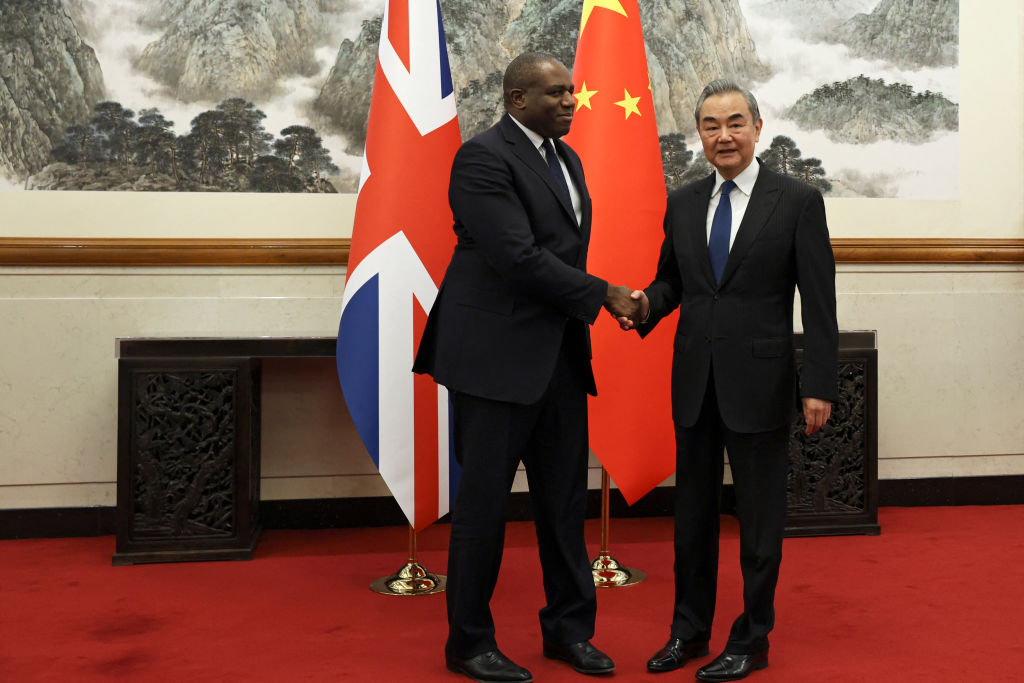David Lammy, the Foreign Secretary, is touching down in Beijing for a two-day visit. The visit is the second by a foreign secretary in six years, with Lammy’s predecessor James Cleverly visiting last year after a five-year pause. However, Lammy’s visit is being met with intrigue, as it forms part of a wider shift on China. While Foreign Office officials shudder at the idea that this is a ‘reset’, it is clear that Keir Starmer is looking to improve relations with China.
Ministers are happy to talk about the need for a more pragmatic approach. Lammy’s supporters emphasise the importance of dialogue and point to how the US, where a bipartisan anti-Beijing consensus holds, has engaged directly with Chinese leaders. But what is the long-term aim? Eyebrows have been raised in government at the fact this visit is taking place before the new government’s China audit – aimed at setting a general direction across government – has been completed and published.
Already the Foreign Secretary has been accused of making undesirable trade-
Already the general direction seems clear. Rachel Reeves is considering visiting in the new year, and could hold the first UK-China Economic and Financial Dialogue since 2019. The last chancellor to visit was Philip Hammond, who spoke about a golden era in relations. As I revealed in last week’s issue of The Spectator, Labour is looking afresh at what Beijing has to offer. For a government with growth as its central goal, the Chinese market is alluring. When money is tight, the world’s second-largest economy looks like a more appealing place to turn. China has plenty to invest, in return. What’s more, Ed Miliband could be tempted to work closely with China, which produces 86 per cent of the world’s solar panels, if he is to have a chance of succeeding in his green energy mission.
But the criticism of Lammy’s visit points to the tricky balance the Labour government needs to strike. Already the Foreign Secretary has been accused of making undesirable trade-offs in order to ensure for a smooth trip. As reported by the Guardian, the Foreign Office asked for a visit by the former Taiwanese president to be postponed until after Lammy’s visit, while the party appears to have backtracked on plans to push for formal recognition of China’s treatment of the Uyghurs as genocide. Within the parliamentary Labour party, there is less backbench pressure for a hawkish approach to China than there is in the Tory party. However, the new Labour government still risks looking as though it is appeasing the Chinese government in its pursuit of growth.







Comments